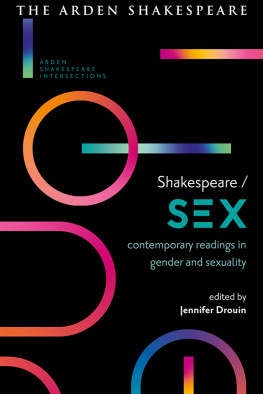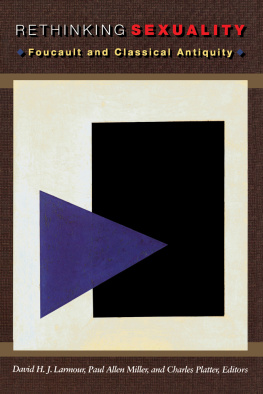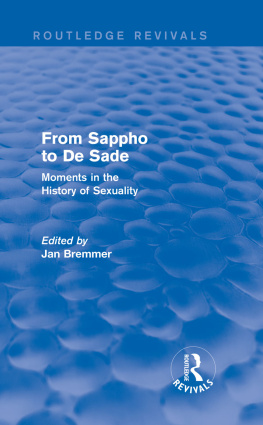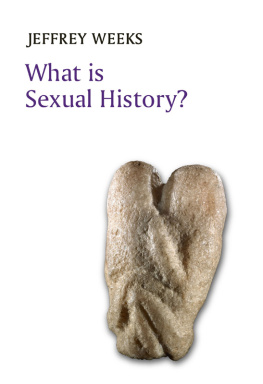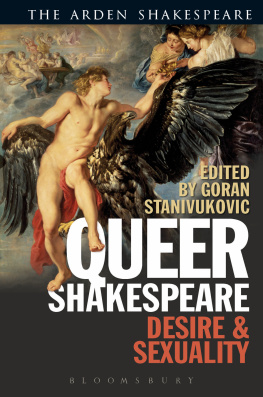QUEER PHILOLOGIES
MATERIAL TEXTS
Series Editors
Roger Chartier
Joseph Farrell
Anthony Grafton
Leah Price
Peter Stallybrass
Michael F. Suarez, S.J.
QUEER PHILOLOGIES

Sex, Language, and Affect in Shakespeares Time
JEFFREY MASTEN

Copyright 2016 University of Pennsylvania Press
All rights reserved. Except for brief quotations used for purposes of review or scholarly citation, none of this book may be reproduced in any form by any means without written permission from the publisher.
Published by
University of Pennsylvania Press
Philadelphia, Pennsylvania 19104-4112
www.upenn.edu/pennpress
Printed in the United States of America on acid-free paper
1 3 5 7 9 10 8 6 4 2
Library of Congress Cataloging-in-Publication Data
Names: Masten, Jeffrey, author.
Title: Queer philologies : sex, language, and affect in Shakespeares time / Jeffrey Masten.
Other titles: Material texts.
Description: Philadelphia : University of Pennsylvania Press, [2016] | 2016 | Series: Material texts | Includes bibliographical references and index.
Identifiers: LCCN 2015038860 | ISBN 9780812247862 (alk. paper) Subjects: LCSH: English literatureEarly modern, 15001700History and criticism. | Language and sexEnglandHistory16th century. | Language and sexEnglandHistory17th century. | Homosexuality and literatureEnglandHistory16th century. | Homosexuality and literatureEnglandHistory17th century. | English languageEarly modern, 15001700. | Sex in literature. Classification: LCC PR428.H66 M37 2016 | DDC 820.9/003dc23 LC record available at http://lccn.loc.gov/2015038860
For
Jay Grossman
Phylologie. Loue of much babling.
Henry Cockeram, The English Dictionarie: Or,
An Interpreter of hard English Words (1623)
Der Zweck der Philologie ist die Historie.
[The purpose of philology is history.]
Friedrich Schlegel, Zur Philologie (1797)
Since the term has so many and such divergent meanings, it is best to abandon it.
Ren Wellek and Austin Warren, Theory
of Literature (1949)
It is thought that philology is finishedand I believe it hasnt yet begun.
Friedrich Nietzsche, We Philologists (1875)
[T]o remain enchanted by the phantom of a political engagement outside and above an engagement with issues of rhetoric, figuration, and fantasy is to ignore the historical conceptualization of homosexuality in a distinctive relation to language.
Lee Edelman, Homographesis (1994)
CONTENTS (A)

CONTENTS (Q)

Q
queue
tail
capital
supervacuous
abuse
philology
skaiography
matrix
cue/count
spell
orthography
habits
perversion
tendencies
mechanical
exercises
his/her
sweet
bung-hole
etymology
persuade
suave
mellifluous
friend
conversation
converse
rare
sporting
intercourse
sexual
jape/sard/swive
enjoy
fuck buddy
boy
man
youth
lamb
cub
codling
bad quarto
letter/ornament/illustration
Ganymede
amorous
enamoured
girl-boy
stripling
instigation
rage/raze
dis-ease
hug
shame
fundament
foundation
prove/probe
fundamentalism
bottom
mongrel
couple
mingle-mangle
gallimaufry
hodge-podge
gentable/genital
tragicomedy
kinship
sodomy
tup/top
monstrous
negar
topt/tapt
lover
friend
wanton
gloss
stranger
bombast/bumbast
bum
Doll
Lombard
buggery

For reasons that are discussed in the Introduction and , quotations from early modern printed and manuscript sources retain their original spellings (including early modern usage of i/j, u/v, and vv, though both long and short s are rendered in modern type).
Except where noted, I have translated a texts blackletter, italic, or other early modern typeface (when used as the default typeface of the text or section of the text) into modern roman type, using italics to indicate the texts emphases. In quotations, second capitals following a larger printed intial capital have also been eliminated silently. In early modern book titles, including in the notes and bibliography, words composed entirely of capitals have generally been rendered as words with initial capitals, and title fonts are made uniformly italic; early modern spelling of titles has been maintained, with some resulting oddities (for example, Scriptvres, Qvip). On meanings conveyed by early modern capitals, see the Introduction and . Given this books emphasis on type and letters, I regret the loss of contextual meaning sometimes incurred by these changes but encourage readers to consult the earlier editions.
Except where noted, all citations of the Oxford English Dictionary refer to the online edition of the OED and reflect the OEDs revisions as of its June 2015 update.
References to Mr. VVilliam Shakespeares Comedies, Histories, & Tragedies (1623) cite through-line numbers (TLN) in The Norton Facsimile: The First Folio of Shakespeare, prepared by Charlton Hinman, unless otherwise noted.

Capitals are increased by parsimony, and diminished by prodigality and misconduct.
Adam Smith, An Inquiry into the Nature
and Causes of the Wealth of Nations
Quin.... and so euery one according to his cue.
A Midsommer Nights Dreame
Q, Without A
Introducing queer philology, I should start at the very beginning: with the letter Q. Q is a letter with quite a history, something of a tale to tell, and we might as well begin with Samuel Johnsons erroneous tale, writing in his Dictionary of 1755: Q, Is a consonant borrowed from the Latin or French... the name of this letter is cue, from queue, French, tail; its form being that of an O with a tail.
Q, writes the sixteenth-century French printer and humanist language reformer Geofroy Tory, in the second book of his magisterial treatise on majuscles, Champ Fleury [the Art and Science of the Due and True Proportion of Classical Letters]
Next page

